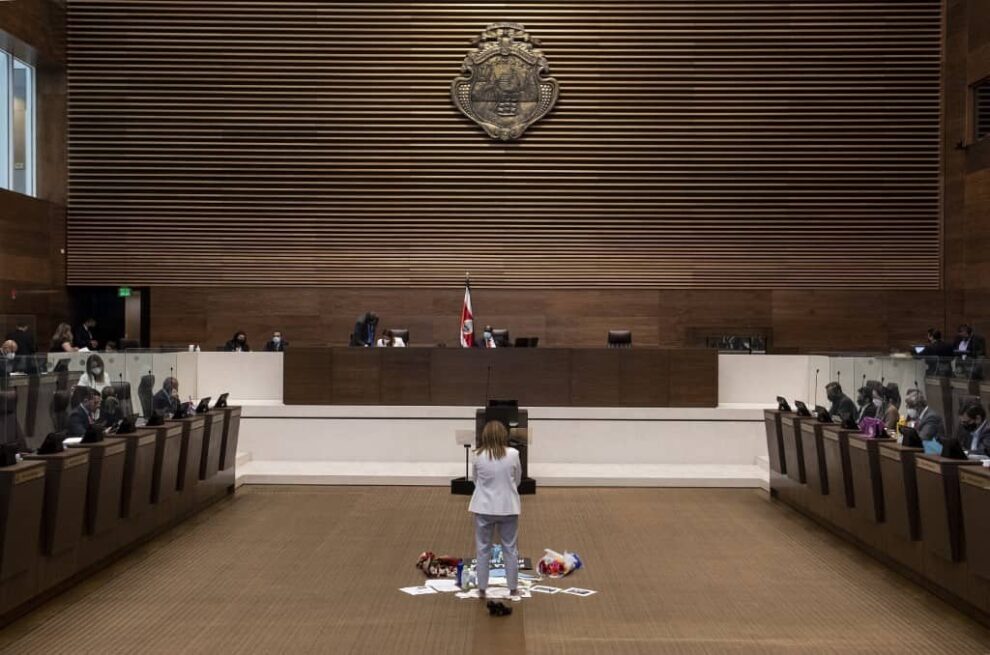The Costa Rican Congress recently made a significant move in the fight against organized crime by approving a reform to the Law against Organized Crime. After intense discussions that lasted for a week and a half, the initiative received favorable votes from 49 legislators, with only two voting against it. Additionally, the Judicial Branch provided a positive opinion on the Bill of Law.
In the process leading up to the approval, political parties held meetings with key figures such as the Attorney General of the Republic, the President of the Supreme Court of Justice, and the Magistrates of the Court. These sessions highlighted the urgent need to pass the initiative, given the threat posed by organized crime and the potential release of dangerous group leaders from prison.
The approved Bill introduces reforms to The Organic Law of the Judiciary and the Law of the Specialized Jurisdiction on Crime. Its main objectives are to improve the wording of existing regulations and clarify the distribution of competencies in matters related to organized crime. It clearly defines which cases should be processed in the ordinary jurisdiction and which ones fall under the Specialized Jurisdiction of Organized Crime.
Another important aspect of the reform is the declaration that cases involving organized crime are considered matters of public action and cannot be converted into private action lawsuits. This ensures that the responsibility of prosecuting organized crime remains with the state and prevents the dilution of legal efforts.
Throughout the discussions, most deputies agreed on the significance of the project in addressing the escalating levels of violence and crime witnessed in recent years. Oscar Izquierdo, a member of the PLN, stated that they voted in accordance with the Judiciary’s request to enhance the effectiveness of the fight against organized crime. Alexander Barrantes, a member of the ruling party, emphasized the project’s importance for national security.
However, there were dissenting voices as well. Congressman Danny Vargas, who voted against the Bill, expressed his dissatisfaction, claiming that their concerns and objections were ignored. He criticized the tendency to pass emergency legislation to tackle criminalization, even if it compromised procedural rights.
Congresswoman Carolina Delgado also voted against the project, as she wanted to address what she considered more substantive issues. She argued that the reform threatened human rights and supported the problematic practices of the Judiciary and the Public Ministry in combating organized crime.
The Bill will now undergo a second discussion in the Legislative Assembly on Monday, May 29, indicating that further deliberations and potential amendments may still be in store.
Nevertheless, the initial approval of the reform reflects the determination of the Costa Rican Congress to confront organized crime and enhance the country’s security measures. The final outcome of the legislative process will shape the future of the fight against organized crime in Costa Rica.
Source : Ticotimes









